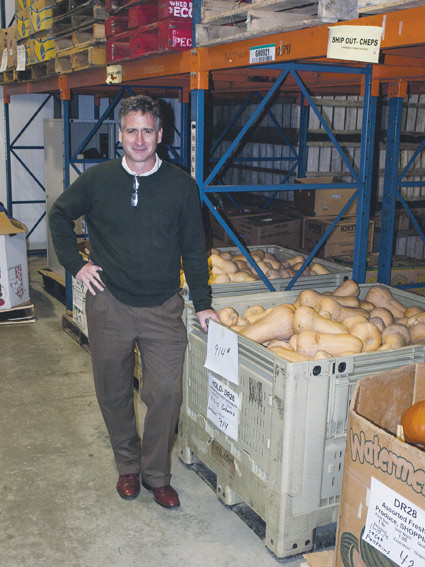
By Debbie Gardner
debbieg@thereminder.com
Since 1982, the Food Bank of Western Massachusetts has helped food pantries, meal sites and shelters throughout Berkshire, Hampshire, Hampden and Franklin counties combat hunger in their communities. Acting as a clearinghouse, it distributes food from many sources – state government (MEFAP), the federal government (TEFAP), local farms, the Food Bank farm, retail and wholesale food businesses, community organizations, and individual donations.
In this season of giving – when food drives abound – PRIME reached out to Food Bank Executive Director Andrew Morehouse for a snapshot of the need among our neighbors and ways individuals can help beyond donating a can of food.
Here’s what he told PRIME:
Q: In 2015, what does hunger look like in Western Massachusetts?
Currently, there are more than 235,000 people in Berkshire, Franklin, Hampden and Hampshire County that seek out food assistance from The Food Bank and our member agencies (comprised of independent local food pantries, meal sites and shelters) to help put food on their tables. These are some of our area’s most vulnerable individuals, including the elderly, children, veterans, and the disabled and working families struggling to make ends meet.
Many of our neighbors who are seeking food assistance have jobs, raise families, work towards getting an education, or are dealing with health problems. Families everywhere that are experiencing food insecurity (not knowing where their next meal will come from) are faced with the difficult decision to either pay for food or pay for other necessities (such as rent, heat or medication). When faced with these impossible choices, people are forced to make concessions that they wouldn’t typically make. Often, they may simply purchase inexpensive, unhealthy food (both of which can lead to health problems — especially in children).
Q: How has the “face” of this social issue changed over the decades?
We are now seeing more households that are chronically food insecure, meaning they must access emergency food on a regular basis to nourish themselves. Each month The Food Bank serves (on average) approximately 90,000 people through our member agencies, as well as through our own feeding programs. This is a 3.5 percent increase over the previous year, and is steadily rising.
In addition, more working families are forced to seek out emergency food. Low wage jobs have left many of our hard-working neighbors on the edge of poverty. In addition to referring them to local pantries and meal sites, The Food Bank works hard to help those who are eligible apply for benefits like SNAP, formerly food stamps. These benefits allow families to sustain themselves while infusing millions of dollars into the local economy.
Q: Are there other ways to help fight local hunger beyond donating food?
Volunteering is a great way to support The Food Bank, as volunteers play a vital role in our daily operation. The effort of volunteers is what makes our work possible whether they are sorting and packing food for distribution, volunteering to help with our Brown Bag: Food For Elders or Mobile Food Bank programs, assisting our staff with special fundraising events, or simply offering support to our daily office responsibilities.
Another way to help is by participating in one of our many fundraising events. Every September, we host a Will Bike 4 Food cycling event in Hatfield. This year, we had nearly 280 riders and raised a record $100,000. Every other spring, we host our gala, which attracts some of the area’s premier restaurants, and serves us an amazing night of food and fun. In addition, other individuals and organizations host events throughout the year in support of The Food Bank’s mission. An updated list can be found on our web site, www.foodbankwma.org.
Lastly, you can join us in advocating for change. Your voice can help bring issues of hunger to the forefront and empower people to work together toward ending hunger. By being an advocate, you can communicate with your elected officials at all levels about local hunger issues, and urge them to provide critical resources necessary to achieving a hunger-free Western Massachusetts. You can get started by visiting our web site to learn about all the different ways to advocate, including receiving our advocacy action alerts via e-mail, sharing your personal story of food insecurity, or reaching out to elected officials.